[vc_row][vc_column][vc_single_image image=”949″ img_size=”full” alignment=”center”][vc_custom_heading text=”“A Piece of My Mind”” font_container=”tag:h1|font_size:50px|text_align:center|color:%232633ef” google_fonts=”font_family:Bitter%3Aregular%2Citalic%2C700|font_style:700%20bold%20regular%3A700%3Anormal”][vc_custom_heading text=”September 2020 Newsletter” font_container=”tag:h1|font_size:30px|text_align:center|color:%232633ef” google_fonts=”font_family:Bitter%3Aregular%2Citalic%2C700″][/vc_column][/vc_row][vc_row][vc_column width=”2/3″][vc_column_text]
Advancing Christian Faith and Values,
Defending Religious Liberty for All,
Supporting Civility and the Common Good
through Preaching, Teaching, Writing, Activism and Reasoned Conversations
www.donaldshoemakerministries.com[/vc_column_text][/vc_column][vc_column width=”1/3″][vc_single_image image=”1304″ img_size=”full” alignment=”center”][/vc_column][/vc_row][vc_row css=”.vc_custom_1598373738095{border-radius: 3px !important;}”][vc_column][vc_column_text]
August 26, 1920 + 100 – Celebrating the 19th Amendment
“The right of citizens of the United States to vote shall not be denied or abridged by the United States or by any State on account of sex.”
[/vc_column_text][vc_column_text]After a very long struggle—and ignored by the 15th Amendment in 1870—women in the U.S. finally gained the right to vote with the approval of the 19th Amendment.
Not to be overlooked is a link between the 18th Amendment (Prohibition) and the 19th. Many saw Prohibition as a woman’s issue—the answer to abuse of wives and families and squandering family resources by drunken husbands.
 Susan B. Anthony was not only a major figure in the women’s suffrage movement. She was also co-founder of the Women’s State Temperance Society in New York. She saw a woman’s right to vote as the main means to achieve Prohibition. Actually, Prohibition passed seven months before the 19th Amendment. Still, the two causes were linked in the activism of many.[/vc_column_text][/vc_column][/vc_row][vc_row][vc_column][vc_column_text]
Susan B. Anthony was not only a major figure in the women’s suffrage movement. She was also co-founder of the Women’s State Temperance Society in New York. She saw a woman’s right to vote as the main means to achieve Prohibition. Actually, Prohibition passed seven months before the 19th Amendment. Still, the two causes were linked in the activism of many.[/vc_column_text][/vc_column][/vc_row][vc_row][vc_column][vc_column_text]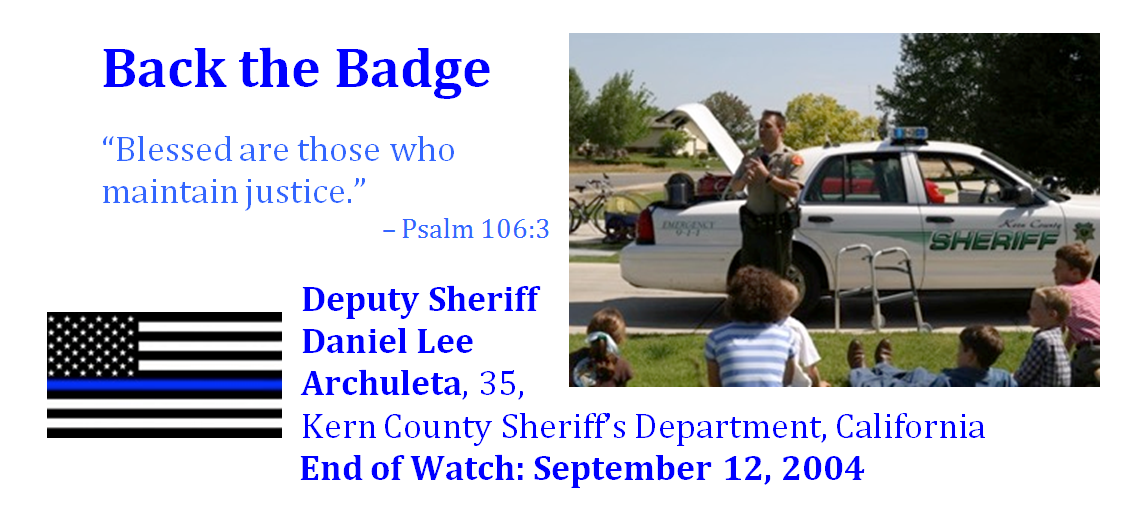 I was privileged to be Dan’s pastor for many years. He grew up in the church. He had been an Explorer with the Seal Beach Police Department. He was deeply devoted to God, his wife and family, his church and community, and to his duties with the Kern County Sheriff’s Department. Tragically, Dan died in a vehicular accident as he was responding to back up another deputy.
I was privileged to be Dan’s pastor for many years. He grew up in the church. He had been an Explorer with the Seal Beach Police Department. He was deeply devoted to God, his wife and family, his church and community, and to his duties with the Kern County Sheriff’s Department. Tragically, Dan died in a vehicular accident as he was responding to back up another deputy.
My wife and I travelled to Bakersfield for his funeral, where I was privileged to sing and offer a tribute. Later, a memorial was held at Grace Community Church in Seal Beach for the benefit of our own members and locals, and for some deputies of the L.A. County Sheriff’s Department, where he once served.
During my memorial message I actually deviated from my prepared remarks to discuss an issue heavy on my heart. I was angry, as I am now as I write this. My mind was on how a book explained these verses (Psalm 91:9-16) –
Because you have made the Lord your dwelling place—
the Most High, who is my refuge—
no evil shall be allowed to befall you,
no plague come near your tent.
For he will command his angels concerning you
to guard you in all your ways.
On their hands they will bear you up,
lest you strike your foot against a stone.
You will tread on the lion and the adder;
the young lion and the serpent you will trample underfoot.
“Because he holds fast to me in love, I will deliver him;
I will protect him, because he knows my name.
When he calls to me, I will answer him;
I will be with him in trouble;
I will rescue him and honor him.
With long life I will satisfy him
and show him my salvation.”
As a police chaplain, I’m always looking for good sources that link spiritual principles with police work. So at a chaplain training conference I grabbed up a book on Psalm 91, Your Shield and Buckler by Jorge Diaz (Maiden Voyage Publishing Company, 2002). The title is taken from Psalm 91:4 (KJV) –
“He shall cover thee with his feathers, and under his wings shalt thou trust: his truth shall be thy shield and buckler.”
As a police chaplain, I’m always looking for good sources that link spiritual principles with police work. So at a chaplain training conference I grabbed up a book on Psalm 91, Your Shield and Buckler by Jorge Diaz (Maiden Voyage Publishing Company, 2002). The title is taken from Psalm 91:4 (KJV) –
“He shall cover thee with his feathers, and under his wings shalt thou trust: his truth shall be thy shield and buckler.”
The key thought of the book is, “…even though we have discovered that God has made divine protection available to us, we still have to choose to partake of His provision. We have to activate God’s Word to experience His power in our life” (page 58).
So the Bible is like a credit card. The card is just numbers on plastic—no power to you unless you ACTIVATE it. The Bible is just words on a page (or scroll, if you please)—its promises have no power for your life unless you ACTIVATE them by faith (sometimes called a “positive confession”). This is a version of the false “name it and claim it” Health and Wealth Gospel.
So officers, activate Psalm 91 and then if the bullets fly, if dangers surround you, if the plague (today: COVID-19) rages around you—God will protect all who have activated the Psalm. It’s guaranteed!
But, I thought, wait a minute! Wasn’t the Bible’s Job (Jōb) a godly, prayerful man and didn’t tragedy (death of his children and terrible financial loss and painful disease) come on him? Didn’t he say, “The Lord has given; the Lord has taken away. Blessed be the name of the Lord” (Job 1:21)?
Yes and yes. And the author knows that. “Rather than place his faith in God’s ability to keep his family and him secure, Job chose to confess his fears until they ‘came upon him.’ Throughout his ordeal, Job continued speaking in fear. Job’s best-known negative confession [Job 1:21] is still misconstrued by some Christians to this day.” “Job was only half right: the Lord does give, but it is Satan who takes. He comes to steal, kill and destroy if we permit him to do so either by our words or by our actions” (page 73, bold italics mine).
This attempt to diminish Job’s heart for God won’t pass biblical examination. “Shall we accept good from the Lord and not accept adversity?” Job asked.
“In all this, Job did not sin in what he said” (Job 1:22; 2:10). Job spoke rightly!
This author is just another one of “Job’s Counselors” – the men who came to Job to tell him his suffering was his own fault. If he had just made a “positive confession” none of this would have happened to him. This kind of thinking is horribly wounding to faithful people who experience harm.
By this teaching, if a law enforcement officer is harmed or killed in the line of duty, it is because he failed to activate (claim) Divine Protection. He’s as much to blame as the officer who forgets to put a cartridge in his TASER. But what does this say to the family and fellow officers of a person known to love God with all his heart and to live faithfully before him?
I confess I’m puzzled on how best to understand Psalm 91. But Asaph, one of the Bible’s psalm-writers, would be puzzled too. He struggled with why good people suffer and the bad guys win (why bad things happen to good people). “Surely in vain have I kept my heart pure… All day long I have been plagued…” (Psalm 73:13—read the whole psalm).
For an answer, Psalm 73 tells us to go to church (so to speak) and try to understand life by looking down from the perspective of Heaven (see verses 16-26). Psalm 73:23-26 –
Nevertheless, I am continually with you;
you hold my right hand.
You guide me with your counsel,
and afterward you will receive me to glory.
Whom have I in heaven but you?
And there is nothing on earth that I desire besides you.
My flesh and my heart may fail,
but God is the strength of my heart and my portion forever.
[/vc_column_text][/vc_column][/vc_row][vc_row][vc_column][vc_column_text]
Bible Insight – Civil Disobedience “The Bible Way”
Part 1 of 2 – The Book of Daniel
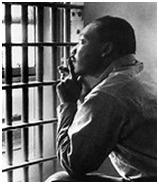 In his remarkable “Letter from Birmingham Jail” (April, 1963) the Rev. Dr. Martin Luther King, Jr. wrote about just and unjust laws and how the latter should be resisted.
In his remarkable “Letter from Birmingham Jail” (April, 1963) the Rev. Dr. Martin Luther King, Jr. wrote about just and unjust laws and how the latter should be resisted.
[T]here are two types of laws: just and unjust. I would be the first to advocate obeying just laws. One has not only a legal but a moral responsibility to obey just laws. Conversely, one has a moral responsibility to disobey unjust laws.
I would agree with St. Augustine that “an unjust law is no law at all.”
Now, what is the difference between the two? How does one determine whether a law is just or unjust? A just law is a man made code that squares with the moral law or the law of God. An unjust law is a code that is out of harmony with the moral law. To put it in the terms of St. Thomas Aquinas: An unjust law is a human law that is not rooted in eternal law and natural law. Any law that uplifts human personality is just. Any law that degrades human personality is unjust.
Dr. King explains how an unjust law can be broken “justly”:
In no sense do I advocate evading or defying the law, as would the rabid segregationist. That would lead to anarchy. One who breaks an unjust law must do so openly, lovingly, and with a willingness to accept the penalty. I submit that an individual who breaks a law that conscience tells him is unjust, and who willingly accepts the penalty of imprisonment in order to arouse the conscience of the community over its injustice, is in reality expressing the highest respect for law.
Dr. King then cites one of three Bible accounts I wish to highlight here. It is the story of Shadrach, Meshach and Abednego (Daniel 3). The Babylonian King Nebuchadnezzar had elevated these excellent Jewish men to roles of high responsibility. But this status didn’t make them immune to the king’s threat of fiery execution when they refused to obey his demand that they worship the image he had set up. To bow to the image would require them to break a higher commandment—God’s commandment against idolatry.
“…our God whom we serve is able to deliver us from the burning fiery furnace, and he will deliver us out of your hand, O king. But if not, be it known to you, O king, that we will not serve your gods or worship the golden image that you have set up.” (Daniel 3:17-18)
They refused, said Dr. King, “on the ground that a higher moral law was at stake. It was practiced superbly by the early Christians, who were willing to face hungry lions and the excruciating pain of chopping blocks rather than submit to certain unjust laws of the Roman Empire.”
The story tells how God delivered these three men from the fire. But God gives no guarantee of this, and the men announced their willingness to join the company of martyrs if God so willed: “God will deliver…but even if not…we will obey him and not the king when commandments are in conflict.”
A second earlier account in the Book of Daniel shows how civil disobedience was averted. Daniel, Shadrach, Meshach and Abednego were being groomed for their service to the king (Daniel 1). Part of this grooming was for them to eat the king’s choice food and drink. This created a moral challenge to the four men, because of the food restrictions taught in the Law of Moses.
“But Daniel resolved not to defile himself with the royal food and wine” (Daniel 1:8). This in itself could be a death sentence to the four men, but Daniel was creative and offered an alternative (you vegetarians will love it!!) to Ashpenaz, the chief court official. “Please test your servants for ten days. Give us nothing but vegetables to eat and water to drink. Then compare our appearance with that of the young men who eat the royal food, and treat your servants in accordance with what you see” (1:12-13).
“At the end of ten days they looked better than any of the young men who ate the royal food. So the guard took away their choice food and the wine they were to drink and gave them vegetables instead” (1:15-16).
Here’s a good policy: Before actually engaging in an act of civil disobedience seek a “win/win” alternative that preserves obedience to both “lower” and “higher” authority. Allow a reasonable period for an accommodation to be made. If the request is refused or ignored, then proceed with the act of civil disobedience against the lower, inferior authority.
The third account involved the Prophet Daniel himself. Deeply dedicated to his service in the Persian government, he became the victim of tricky, jealous men who wanted to turn King Darius against him. They looked for some way to accuse him of failing in his secular duties, but they found none. These men had to admit, “We shall not find any ground for complaint against this Daniel unless we find it in connection with the law of his God.” (Daniel 6:5)
So they concocted the suggestion that the king forbid all prayer to anyone other than himself for 30 days. In weakness and pride the king foolishly approved the decree.
Then what did Daniel do?
When Daniel knew that the document had been signed, he went to his house where he had windows in his upper chamber open toward Jerusalem. He got down on his knees three times a day and prayed and gave thanks before his God, as he had done previously. (6:10)
Notice: Daniel fully knew he was violating the king’s decree.
Notice: Daniel could have prayed secretly but chose to continue his open and purposeful prayer practice just as before.
Notice: Daniel didn’t start doing something new (in order, for example, to challenge the king’s decree directly and intentionally).
In these three accounts we see two forms of civil disobedience (resistance to an unjust law or authority with willingness to suffer the penalty):
1. Refusing to do what the state demands we do, to obey a higher law.
2. Doing what we ought to do, in spite of the state forbidding us.
We also see important qualities in those who practiced civil disobedience:
1. Their lives were honorable in the sight of both God and man. Their loyalty and diligence fulfilling secular duties under secular authority were beyond question and above reproach.
2. They upheld the rule of law by willingly submitting to the consequences of breaking it. Not for personal gain or pleasure, like constant speeding and accepting the occasional citation, but for living honorably before the presence of God.
The earliest Christians likewise faced questions about their loyalty to a pagan state and where to draw the line. The First Epistle of Peter gave them excellent guidance and the words still instruct us today:
Be subject for the Lord’s sake to every human institution, whether it be to the emperor as supreme, or to governors as sent by him to punish those who do evil and to praise those who do good. For this is the will of God, that by doing good you should put to silence the ignorance of foolish people. Live as people who are free, not using your freedom as a cover-up for evil, but living as servants of God. Honor everyone. Love the brotherhood. Fear God. Honor the emperor. (2:13-17)
But let none of you suffer as a murderer or a thief or an evildoer or as a meddler. Yet if anyone suffers as a Christian, let him not be ashamed, but let him glorify God in that name. (4:15-16)
Therefore let those who suffer according to God’s will entrust their souls to a faithful Creator while doing good. (4:19)
How do you think these lessons apply to living by a higher command today?
Next Month: Part 2 of 2 – Paul, Citizen-Evangelist
Message of the Month:
Trusting God or Testing God?
(Bringing Psalm 91 and Civil Disobedience Together)
Two prominent congregations in Southern California have resumed regular Sunday services in violation of the state’s shutdown order.
• Grace Community Church of Sun Valley, John MacArthur, pastor
• Calvary Chapel of Newbury Park, Roy McCoy, pastor
In my May 2020 newsletter I upheld Pastor McCoy and his church for courageously observing Good Friday Communion in spite of the forced closure of churches. That Communion Service observed all the health precautions.
Now both congregations are meeting indoors with large congregations present, without social distancing and without wearing masks.
Is this valid civil disobedience? And is it a valid application of what the Bible says about God’s promised protection (Psalm 91:11-12)?
For he will command his angels concerning you
to guard you in all your ways.
On their hands they will bear you up,
lest you strike your foot against a stone.
This scripture pops up again in the Bible—at The Temptation of Jesus (Matthew 4:5-11). The Devil told Jesus to cast himself down from the pinnacle of the temple—after all, “if you are the Son of God, God will send his angels to swoop down and save you.” This display of sonship would “wow” the crowds!
But Jesus answered, “Do not put the Lord your God to the test” (4:7). Yes, God protects, but we are not to do foolhardy things that take his promises for granted. We bike with helmets. We don’t avoid vaccines or throw our insulin away, thinking God promises to keep us well or heal us if we have faith.
My questions (I do not know at this point what all the answers might be):
• If, as Pastor McCoy said in a prayer, they are obeying God’s command by gathering, why did the church stop meeting at all? Why was social distancing the proper thing to do in April, but now it can be ignored?
• Are Calvary Chapel and Grace Community Church putting the Lord to the test by not requiring safety precautions?
• Are the churches willing to accept any LEGAL consequences of civil disobedience (perhaps arrest, fines, even jail time)? Yes, it appears. Are they willing to bear any CIVIL consequences (financial liability), should any worshippers become ill or spread the virus to others?
• Did each congregation first seek “win/win” solutions?
• In the final analysis, are current restrictions unfair to God’s church and compromise his people, either purposely or carelessly? Or are they neutral, treating comparable gathering equally? Some yes, some no.
I pray for these pastors and churches. I want to support them all I can.
Hagia Sophia Cathedral Now Once Again a Mosque
 Byzantine Emperor Constantius II commissioned construction of the first “Hagia Sophia”, the Cathedral of Holy Wisdom, in Constantinople in 360 A.D. It was burned by rioters in 404 A.D. A second edifice was completed in 415 A.D., but it met a similar fate a century later.
Byzantine Emperor Constantius II commissioned construction of the first “Hagia Sophia”, the Cathedral of Holy Wisdom, in Constantinople in 360 A.D. It was burned by rioters in 404 A.D. A second edifice was completed in 415 A.D., but it met a similar fate a century later.
Today’s “Hagia Sophia” was built by the emperor Justinian in 537 A.D.
For a time it was the largest building and largest church in the world.
After the Turks captured Constantinople (which became Istanbul) in 1453, the building that had been a Christian church for over 900 years (1100 years if you consider the predecessor edifices at the same location) was changed into a mosque. Its Christian mosaics and art were removed or painted over.
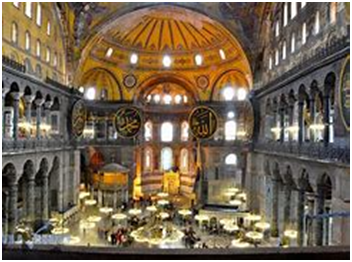 In 1934, after modern-day Turkey was established as a secular, liberal state, Hagia Sophia became a museum—its beautiful artworks restored.
In 1934, after modern-day Turkey was established as a secular, liberal state, Hagia Sophia became a museum—its beautiful artworks restored.
Now Turkish President Recep Erdogan has reverted the building into a mosque once again as he moves his country toward being an Islamic state.
A building doth not a church make. Still, how a building like Hagia Sophia, with its heritage, is treated has a lot to say about which way a culture is going, good or bad.[/vc_column_text][vc_row_inner][vc_column_inner][vc_column_text]
Remembering September, 1945 – 75 years ago
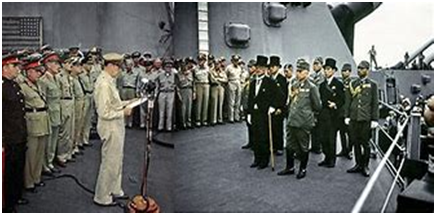 On September 2, 1945, in a ceremony on the battleship USS Missouri in Tokyo Bay, Japanese officials formally surrendered to General Douglas MacArthur, Supreme Allied Commander.
On September 2, 1945, in a ceremony on the battleship USS Missouri in Tokyo Bay, Japanese officials formally surrendered to General Douglas MacArthur, Supreme Allied Commander.
 Japanese Foreign Minister Mamoru Shigemitsu signed the Instrument of Surrender on behalf of the Japanese Government.
Japanese Foreign Minister Mamoru Shigemitsu signed the Instrument of Surrender on behalf of the Japanese Government.
General Yoshijiro Umezu, Chief of the Army General Staff, signed the Instrument of Surrender on behalf of the Japanese Imperial General Headquarters. Watching from across the table are Lt. General Richard K. Sutherland and General MacArthur. Representatives of the Allied Powers stand behind General MacArthur.
There General MacArthur said, “It is my earnest hope, and indeed the hope of all mankind, that from this solemn occasion a better world shall emerge out of the blood  and carnage of the past – a world founded upon faith and understanding, a world dedicated to the dignity of man and the fulfillment of his most cherished wish for freedom, tolerance, and justice.”
and carnage of the past – a world founded upon faith and understanding, a world dedicated to the dignity of man and the fulfillment of his most cherished wish for freedom, tolerance, and justice.”
General MacArthur’s ambitious, laudable hope would be dashed less than five years later (June 25, 1950), when 75,000 North Korean troops invaded South Korea. The Korean War has never officially ended with a treaty.
Important Addendum for Pastors and Church Leaders
Churches and Political Action—What Pastors and Churches Should and Should Not Do
With election season being extremely important in American politics, what’s a pastor or church to do? Or not do? I offer these thoughts to assist you. I challenge all churches to do all they can that is legal and ethical.
Donald Shoemaker
© 2020 Donald Shoemaker
1. From a LEGAL STANDPOINT, here are the “Do’s and Don’ts”:
• Churches MAY NOT endorse or oppose a candidate.
• Pastors MAY as individuals support or oppose candidates, but MAY NOT convey that they speak for their churches. And they should not proclaim their “personal decision” in any church medium (like the pulpit or newsletter or on-line). No preaching, “I’m not telling you who to vote for and I’m not speaking for the church, but here’s where I’m putting my support…”
• Churches MAY NOT use their resources (like facilities, property or equipment) in contexts that endorse or oppose a candidate.
• Churches MAY invite candidates to speak if done even-handedly and not selectively. Their presence in a service or in the pulpit MUST NOT convey the church’s support of any candidate.
• Churches MAY distribute voter guides, but I don’t recommend it because almost all have a “slant” to promote. I also would not allow members or outside groups to bring literature to the church or blitz cars in the church’s parking lot with flyers. If outsiders show up or blitz the parking lot, it may be wise for the pastor to disavow the activity.
• Churches MAY schedule a forum where the candidates for an office are invited to speak and answer questions. If only one shows up that’s not a legal problem, but it may not look the best and the church would need to be careful not to have the occasion appear to be an endorsement of the candidate who appeared.
• Churches MAY spend money and lobby and encourage members in support of or in opposition to a ballot measure or a piece of legislation. The limitation is that the resources expended MUST NOT be “substantial”. This may be interpreted as “not more than 5% of resources”, which would almost never be exceeded in churches as reticent as many evangelical churches traditionally are. The limit applies not just to money spent but also to factors such as pastoral time.
2. I DO RECOMMEND these points of guidance:
• Always maintain a distinction between the ultimate issues of the Kingdom of God and the penultimate possibilities of the political process. The latter are worthwhile but not perfect. They are secondary and not primary. They need the church’s voice and attention but must not get top billing.
• Preach on morally laden issues and proposals like good or bad legislation or initiatives. But be sure that the biblical “connectedness” is made clear. Of course we preach sensitive to the congregation and visitors in such matters, but avoiding the topics should not be considered an option.
• Have the church’s official body (Elders, board, or congregation) take positions on issues subject to the above qualifications and when the issue is important.
• Do voter registration at the church before and after services. This is a non-partisan activity.
• Have a forum to educate church members on ballot initiatives.
• Encourage members to write elected and appointed officials to express their opinions and to ask for a vote for or against a measure.
• Have your facility used for voting, subject to acceptable rules (for examples, I wouldn’t accept a demand to cover the cross but removing a literature table may be acceptable). This is a natural way of showing interest in the wellbeing of your community.
• DO NOT politicize your message. By “politicize” I mean stridently or subtly speaking for or against a particular party or political stratum.
• Remember, the spiritual upbuilding of the saints is always the goal in a worship service. This influences sermon style and content immensely.
• Politically activist Christians must remember that the unity of the church must transcend all political and secular unities.
• Remember the admonition (I’ve made it often and sometimes it’s been heard with much irritation, but at least the point wasn’t missed):
“The church is the one place where a very liberal Democrat and a very conservative Republican should be able to join hands and sing,
‘We Are One in the Bond of Love’.”
3. Topics to Proclaim:
Churches have a powerful communication instrument known as “The Pulpit” (even if “pulpit” is now a metaphor). Here are some topics, which could be sermons, sermon points, or discussion points:
• Immigration from a biblical perspective
• The Sovereignty of God over the governments of Man (“The Most High is sovereign over the kingdoms of men and gives them to anyone he wishes.” – Daniel 4:25)
• Religious Freedom and how it is eroding
• How healing can come to fractured race relations
• The duties of good Christian Citizenship (we now live in a participatory republic rather than in the Roman society that disadvantaged and even persecuted believers and where few had citizenship rights)
• The need for fiscal wisdom and accountability in government
• Godly people of the Bible who served the secular state and society of their times (Joseph, Daniel, Esther, Nehemiah)
• How God works peace and justice through governments he establishes, be they ever so fragile and faulty
• What God expects of secular rulers and those who “bear the sword”
• The Issue that Won’t Go Away—Protecting Unborn Human Life
– end –
Contact me at: donaldshoemakerministries@verizon.net
www.donaldshoemakerministries.com
[/vc_column_text][/vc_column_inner][/vc_row_inner][/vc_column][/vc_row]


 “Out of lament must come fresh action. At the very least, clergy (properly trained, authorized and protectively clothed) must be allowed to attend the sick and the dying.
“Out of lament must come fresh action. At the very least, clergy (properly trained, authorized and protectively clothed) must be allowed to attend the sick and the dying.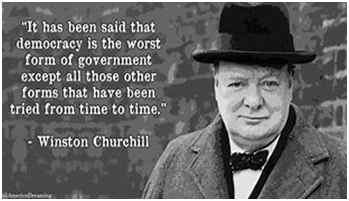 “Mobocracy” is authoritarian and contrary to American ideals.
“Mobocracy” is authoritarian and contrary to American ideals.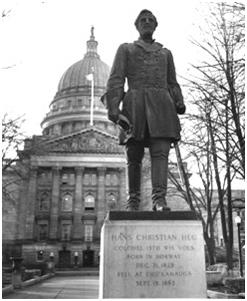 Mobocracy in Action
Mobocracy in Action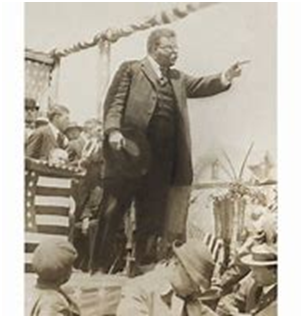 Election Season—Time for Politicians and Citizens
Election Season—Time for Politicians and Citizens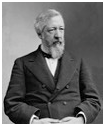 1. Espinoza v. Montana Department of Revenue
1. Espinoza v. Montana Department of Revenue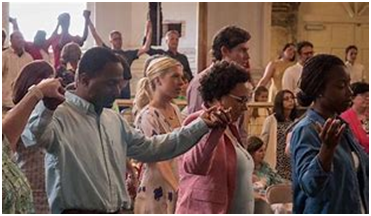 Let us consider how to stir up one another to love and good works, not neglecting to meet together, as is the habit of some, but encouraging one another, and all the more as you see the Day drawing near.
Let us consider how to stir up one another to love and good works, not neglecting to meet together, as is the habit of some, but encouraging one another, and all the more as you see the Day drawing near.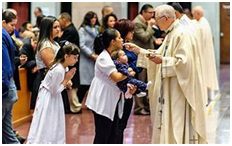 4. We must PARTAKE (receive Communion—
4. We must PARTAKE (receive Communion—
 This weekend is the 244th anniversary of the signing of the Declaration of Independence. Normally, we don’t make a huge deal of patriotic holidays in worship, because it is not the role of the church to celebrate national holidays.
This weekend is the 244th anniversary of the signing of the Declaration of Independence. Normally, we don’t make a huge deal of patriotic holidays in worship, because it is not the role of the church to celebrate national holidays.
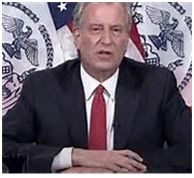 “My message to the Jewish community, and all communities, is this simple: the time for warnings has passed. I have instructed the NYPD to proceed immediately to summons or even arrest those who gather in large groups. This is about stopping this disease and saving lives. Period.”
“My message to the Jewish community, and all communities, is this simple: the time for warnings has passed. I have instructed the NYPD to proceed immediately to summons or even arrest those who gather in large groups. This is about stopping this disease and saving lives. Period.”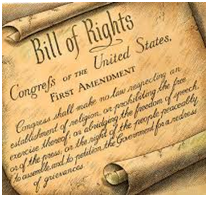 “Congress shall make no law respecting an establishment of religion, or prohibiting the free exercise thereof, or abridging the freedom of speech, or of the press; or the right of the people peaceably to assemble, and to petition the Government for a redress of grievances.” – 1st Amendment
“Congress shall make no law respecting an establishment of religion, or prohibiting the free exercise thereof, or abridging the freedom of speech, or of the press; or the right of the people peaceably to assemble, and to petition the Government for a redress of grievances.” – 1st Amendment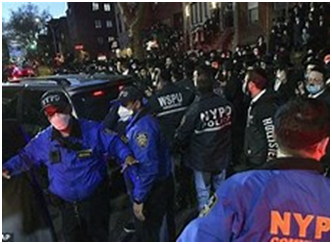 Hizzoner dispatched the police Hong-Kong-style to break up the gathering.
Hizzoner dispatched the police Hong-Kong-style to break up the gathering.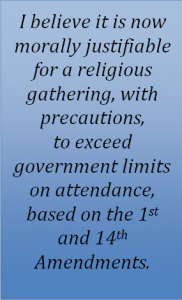 (1) Viewpoint Neutrality – the First Amendment’s freedom of speech provision forbids the government from giving advantage or disadvantage to any person or group based on the content of what is being expressed.
(1) Viewpoint Neutrality – the First Amendment’s freedom of speech provision forbids the government from giving advantage or disadvantage to any person or group based on the content of what is being expressed. Jesus didn’t have Caesar’s Palace (right) in mind with those words, of course. He taught that people have a duty to Caesar (civil authority) and to God (ultimate authority).
Jesus didn’t have Caesar’s Palace (right) in mind with those words, of course. He taught that people have a duty to Caesar (civil authority) and to God (ultimate authority). Which is the greater health risk? What would “science-driven policy” require?
Which is the greater health risk? What would “science-driven policy” require? ON CAUSES YOU MAY WISH TO SUPPORT
ON CAUSES YOU MAY WISH TO SUPPORT Bible Insight –
Bible Insight – Back the Badge – Psalm 106:3
Back the Badge – Psalm 106:3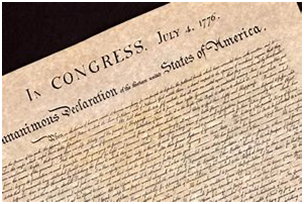 July 4, 1776
July 4, 1776 The Northwest Territory was created by Congress in 1787. At that time, slavery was legal in every one of the thirteen states.
The Northwest Territory was created by Congress in 1787. At that time, slavery was legal in every one of the thirteen states.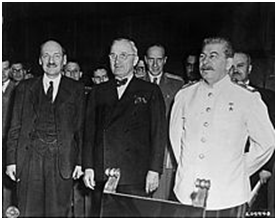

 Message for Pentecost Sunday (May 31)
Message for Pentecost Sunday (May 31)
 When He shall come with trumpet sound
When He shall come with trumpet sound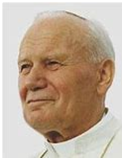 May 18, 2020 – Centennial of One of the
May 18, 2020 – Centennial of One of the Karol Wojtyla helped keep his Polish culture alive while Poland was under Nazi occupation by establishing the Rhapsodic Theater where his acting skills were put to use in clandestine performances.
Karol Wojtyla helped keep his Polish culture alive while Poland was under Nazi occupation by establishing the Rhapsodic Theater where his acting skills were put to use in clandestine performances. Bible Insight –
Bible Insight – Grace Community Church is on-line during the present coronavirus limitations. There are no gathered worship services for the time being. Watch and participate in the Sunday services during the service times at 9:30 and 11:00 PDT, or anytime afterward.
Grace Community Church is on-line during the present coronavirus limitations. There are no gathered worship services for the time being. Watch and participate in the Sunday services during the service times at 9:30 and 11:00 PDT, or anytime afterward.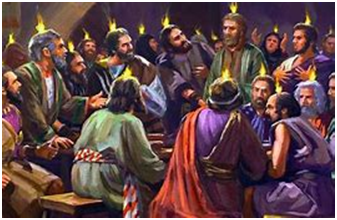 When the day of Pentecost came, they were all together in one place. Suddenly a sound like the blowing of a violent wind came from heaven and filled the whole house where they were sitting. They saw what seemed to be tongues of fire that separated and came to rest on each of them. All of them were filled with the Holy Spirit and began to speak in other tongues as the Spirit enabled them. – Acts 2:1-4 NIV
When the day of Pentecost came, they were all together in one place. Suddenly a sound like the blowing of a violent wind came from heaven and filled the whole house where they were sitting. They saw what seemed to be tongues of fire that separated and came to rest on each of them. All of them were filled with the Holy Spirit and began to speak in other tongues as the Spirit enabled them. – Acts 2:1-4 NIV World War II ended in Europe on May 7-9, with the unconditional surrender of Germany. Hitler was dead. Less than a month earlier, allied troops had discovered camps in Germany for exterminating Jews.
World War II ended in Europe on May 7-9, with the unconditional surrender of Germany. Hitler was dead. Less than a month earlier, allied troops had discovered camps in Germany for exterminating Jews.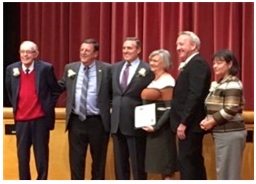
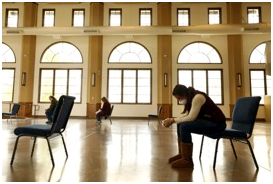 But Mr. McCoy resigned from the city council because of his pastoral decision to offer Holy Communion at his church on Palm Sunday. Would this be a gross violation of the separation/safety protocols? No. Ten people would enter the sanctuary at a time over a two-hour period. Chairs were sanitized after each use. Those waiting lined up outside at a distance from each other. No one touched anyone else.
But Mr. McCoy resigned from the city council because of his pastoral decision to offer Holy Communion at his church on Palm Sunday. Would this be a gross violation of the separation/safety protocols? No. Ten people would enter the sanctuary at a time over a two-hour period. Chairs were sanitized after each use. Those waiting lined up outside at a distance from each other. No one touched anyone else. How to Wash Your Hands during the Coronavirus Crisis
How to Wash Your Hands during the Coronavirus Crisis America is “quarantined.” Where did this term come from?
America is “quarantined.” Where did this term come from? Jim Bakker just won’t go away!
Jim Bakker just won’t go away!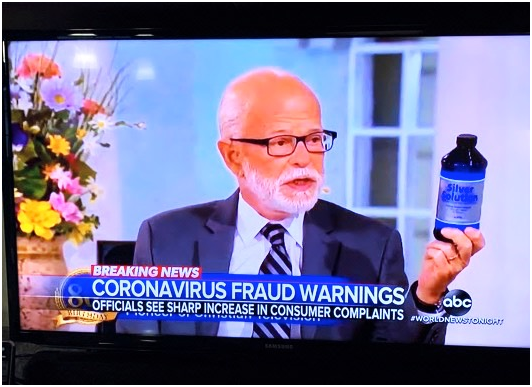 [/vc_column_text][/vc_column][/vc_row][vc_row][vc_column][vc_column_text]
[/vc_column_text][/vc_column][/vc_row][vc_row][vc_column][vc_column_text]
 One person gives freely, yet gains even more;
One person gives freely, yet gains even more; President Gerald Ford became very proactive and encouraged mass vaccination. Those who remember this flu scare may recall his very public televised vaccination.
President Gerald Ford became very proactive and encouraged mass vaccination. Those who remember this flu scare may recall his very public televised vaccination. Ministers MUST pay into Social Security
Ministers MUST pay into Social Security Chase and Nicole McKeown are officers with the Elizabethtown, KY police department.
Chase and Nicole McKeown are officers with the Elizabethtown, KY police department. “Brother Enfu” is the pastor of an unregistered (thus illegal) church in China. Every time his church meets, he and the other church members know that police could raid the service and close down their meeting. Church members have been told to stop attending services or risk losing their jobs, and other churches in the area have already been closed.
“Brother Enfu” is the pastor of an unregistered (thus illegal) church in China. Every time his church meets, he and the other church members know that police could raid the service and close down their meeting. Church members have been told to stop attending services or risk losing their jobs, and other churches in the area have already been closed. Winter of 1968
Winter of 1968 Immigrant business owners easily find themselves victims of such lawsuits. Many of these hard-working people are not culturally accustomed to detailed regulations. So they might get sued, for example, for having a bathroom mirror a couple of inches too high.
Immigrant business owners easily find themselves victims of such lawsuits. Many of these hard-working people are not culturally accustomed to detailed regulations. So they might get sued, for example, for having a bathroom mirror a couple of inches too high.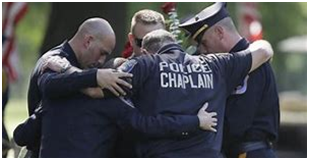 Chaplains are there to
Chaplains are there to “I consider the government of the United States as interdicted by the Constitution from intermeddling with religious institutions, their doctrines, discipline, or exercises.”
“I consider the government of the United States as interdicted by the Constitution from intermeddling with religious institutions, their doctrines, discipline, or exercises.”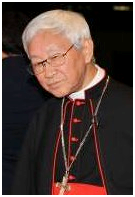 On Feb. 11, Cardinal Joseph Zen, emeritus bishop of Hong Kong, discussed the situation of the Church in China with the Catholic News Agency.
On Feb. 11, Cardinal Joseph Zen, emeritus bishop of Hong Kong, discussed the situation of the Church in China with the Catholic News Agency.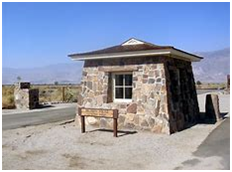 The Great Wrong of Executive Order 9066 on February 19, 1942
The Great Wrong of Executive Order 9066 on February 19, 1942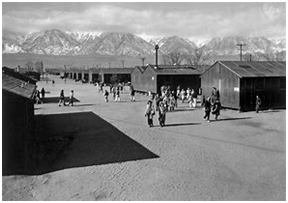 Now the location has a fine museum and you can drive around and see signs telling you what buildings were at various locations. Manzanar was not a “concentration camp” by any means, but it was not a retreat either. Winters were cold; summers very hot. The centers were essentially prisons for those who had done nothing wrong—they were simply Americans of Japanese descent.
Now the location has a fine museum and you can drive around and see signs telling you what buildings were at various locations. Manzanar was not a “concentration camp” by any means, but it was not a retreat either. Winters were cold; summers very hot. The centers were essentially prisons for those who had done nothing wrong—they were simply Americans of Japanese descent. The Raunchiest Ad on TV?
The Raunchiest Ad on TV? My frame was not hidden from you,
My frame was not hidden from you, No defense can take the place of dedicated law enforcement officers who are willing to run toward danger to save lives. But officers are not ubiquitous and a wary and prepared citizenry will often be the first line of defense. *
No defense can take the place of dedicated law enforcement officers who are willing to run toward danger to save lives. But officers are not ubiquitous and a wary and prepared citizenry will often be the first line of defense. *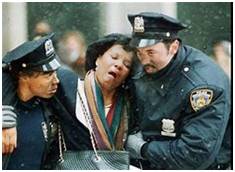 Back the Badge – Psalm 106:3
Back the Badge – Psalm 106:3 Jefferson saw this as one of his greatest achievements, so much so that it is listed on his tombstone along with authorship of the Declaration of American Independence and Father of the University of Virginia. Oddly enough, he did not list “President of the United States”, perhaps considering that role less significant (those were different days for how the Executive Branch was viewed, but I digress).
Jefferson saw this as one of his greatest achievements, so much so that it is listed on his tombstone along with authorship of the Declaration of American Independence and Father of the University of Virginia. Oddly enough, he did not list “President of the United States”, perhaps considering that role less significant (those were different days for how the Executive Branch was viewed, but I digress).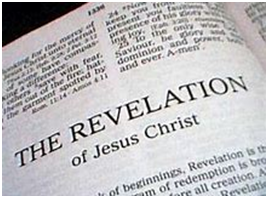 Bible Insight—Finding Truth in the Book of Revelation
Bible Insight—Finding Truth in the Book of Revelation Revival
Revival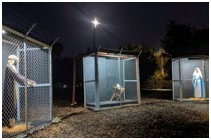 A church in Claremont, California created quite a controversy (as I’m sure they intended) by putting Joseph, Mary, and Baby Jesus in cages—symbolizing experiences of some attempting immigration into the U.S. along the southern border.
A church in Claremont, California created quite a controversy (as I’m sure they intended) by putting Joseph, Mary, and Baby Jesus in cages—symbolizing experiences of some attempting immigration into the U.S. along the southern border. Here was government oppression to faith in God, up to and including killing. Here was fear to return to the land because of new oppression. Imagine being afraid of the leaders in the country you love and call “home”, because they cannot tolerate a challenge to their rule—in this case a spiritual challenger (this is typical of tyranny). The travail and risks of emigration are preferred over the travail and risks of living under tyranny while striving to please God.
Here was government oppression to faith in God, up to and including killing. Here was fear to return to the land because of new oppression. Imagine being afraid of the leaders in the country you love and call “home”, because they cannot tolerate a challenge to their rule—in this case a spiritual challenger (this is typical of tyranny). The travail and risks of emigration are preferred over the travail and risks of living under tyranny while striving to please God.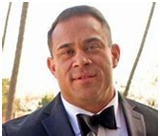 Seth Eaker, 46, of Seal Beach CA died suddenly and unexpectedly on December 18.
Seth Eaker, 46, of Seal Beach CA died suddenly and unexpectedly on December 18.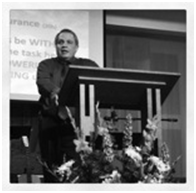 Don’s Ministry
Don’s Ministry
 You Know You Are in the Heart of Ohio
You Know You Are in the Heart of Ohio A man in the car parked beside you at your hotel offers you his scrapper without being asked, to clear the ice and frost off your car windows.
A man in the car parked beside you at your hotel offers you his scrapper without being asked, to clear the ice and frost off your car windows. Message for the Season . . .
Message for the Season . . .